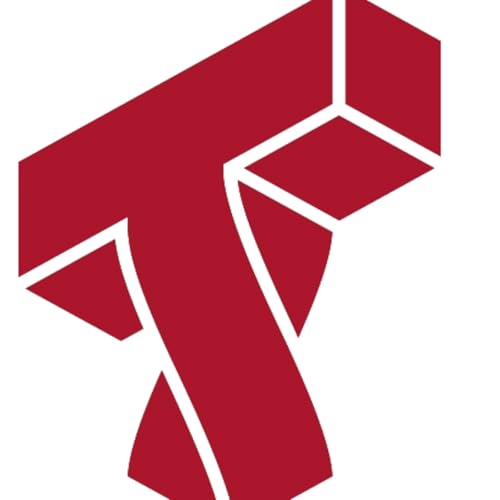
No Such Thing: Education in the Digital Age
カートのアイテムが多すぎます
カートに追加できませんでした。
ウィッシュリストに追加できませんでした。
ほしい物リストの削除に失敗しました。
ポッドキャストのフォローに失敗しました
ポッドキャストのフォロー解除に失敗しました
-
ナレーター:
-
著者:
-
Marc Lesser
このコンテンツについて
The show is about learning with technology, the realities and exciting potential.
Enjoying the show? Please take a moment to rate us, and leave a review wherever you've accessed the podcast. Find our listener survey at facebook.com/nosuchthingpodcast drop a like on the page while you're there.
The music in this podcast was produced by Leroy Tindy, a guest in episode zero. You can find him on SoundCloud at AirTindi Beats.
The podcast is produced by Marc Lesser. Marc is a specialist in the fields of digital learning and youth development with broad experience designing programming and learning environments in local and national contexts. Marc recently served as Youth Studies Practitioner Fellow at City University of New York, and leads a team of researchers and technologists for NAF (National Academy Foundation).
Marc is the co-founder of Emoti-Con NYC, New York's biggest youth digital media and technology festival, and in 2012 was named a National School Boards Association “20-to-Watch” among national leaders in education and technology. Connect with Marc on BlueSky @malesser, or LinkedIn.
Copyright Marc Lesser 2017
-
 59 分
59 分カートのアイテムが多すぎます
ご購入は五十タイトルがカートに入っている場合のみです。カートに追加できませんでした。
しばらく経ってから再度お試しください。ウィッシュリストに追加できませんでした。
しばらく経ってから再度お試しください。ほしい物リストの削除に失敗しました。
しばらく経ってから再度お試しください。ポッドキャストのフォローに失敗しました
ポッドキャストのフォロー解除に失敗しました
-
 2025/07/311 時間
2025/07/311 時間カートのアイテムが多すぎます
ご購入は五十タイトルがカートに入っている場合のみです。カートに追加できませんでした。
しばらく経ってから再度お試しください。ウィッシュリストに追加できませんでした。
しばらく経ってから再度お試しください。ほしい物リストの削除に失敗しました。
しばらく経ってから再度お試しください。ポッドキャストのフォローに失敗しました
ポッドキャストのフォロー解除に失敗しました
-
 2025/06/2546 分
2025/06/2546 分カートのアイテムが多すぎます
ご購入は五十タイトルがカートに入っている場合のみです。カートに追加できませんでした。
しばらく経ってから再度お試しください。ウィッシュリストに追加できませんでした。
しばらく経ってから再度お試しください。ほしい物リストの削除に失敗しました。
しばらく経ってから再度お試しください。ポッドキャストのフォローに失敗しました
ポッドキャストのフォロー解除に失敗しました


